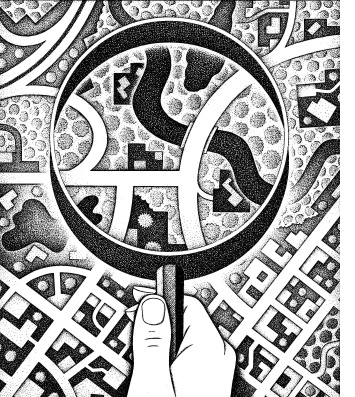Where Am I? The Power of Uniqueness
What’s the value of uniqueness and community identity? That’s the question ULI analyst — and long-time Planning Commissioners Journal columnist — Ed McMahon addresses in his dynamic 17-minute TED Talk.
 Economic development is vital for most communities. But what kind of development and where it best fits are often challenging questions.These articles & postings consider various aspects of planning for local economic development.
Economic development is vital for most communities. But what kind of development and where it best fits are often challenging questions.These articles & postings consider various aspects of planning for local economic development.
Continue to older articles & posts — or return to newer ones — where you see the green buttons at the bottom of the page.
What’s the value of uniqueness and community identity? That’s the question ULI analyst — and long-time Planning Commissioners Journal columnist — Ed McMahon addresses in his dynamic 17-minute TED Talk.
Your citizens are sick of throwing their hard-earned tax money — in the form of incentives — at businesses they don’t think give a damn about their community. How can we fix this situation?
As local government and nonprofit finances get tighter and tighter, it’s time we take a closer look at how we make use of economic development incentives.
Local governments often turn to the use of various incentives to promote economic development. But are they based on strategies set out in a local economic development plan? (You do have a plan?)
For many of our communities’ most valuable workers, the very nature of being employed looks nothing like we traditionally think it does. In the U.S., we call many of these folks 1099ers, or freelancers or contract workers.
Is a rail resurgence just around the corner? There are some positive signs, as rail-related projects are being planned and implemented across the country.
Deepa Sanyal considers the value rail stations hold to communities, and offers a glimpse of some exciting rail-related development projects in the works.
Communities can help new businesses by sharing information about their assets and their opportunities. It can make all the difference between a hometown success story and a could-have-been-if-only tale.
Della Rucker reflects on a paradox: small businesses thrive on being independent and in charge of their own future, yet small businesses do best when they’re part of a community network that can provide mutual support.
Small businesses are growing in number, economic reach and economic impact … the businesses our communities are dealing with, more and more, are small.
Low taxes! Great Incentives! Central location! How does that make you special? This is an old industrial-era economic development paradigm. Instead, Della Rucker suggests, focus on what makes your community unique.
“I see usability.” That was Della Rucker’s father’s favorite saying — and it carries an important lesson for how we can view our cities and towns.
Your home grown businesses are the ones that are adapted to your community’s social, cultural, and economic environment — and are often in the best position to anticipate and adapt to changes in the world surrounding them.